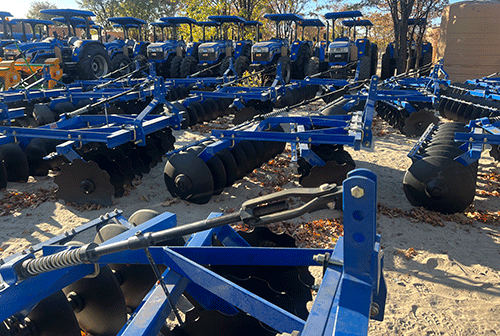Government and stakeholders are working tirelessly to reach the most vulnerable communities who are at risk due to weather-related impacts and to unlock Namibia’s agricultural potential.
The World Food Programme (WFP) is one entity that is involved in working with governments by strengthening procurement capacities for food self-sufficiency.
“The partnership between WFP and the agriculture ministry confirms our commitment to support the Namibian government to reach the most vulnerable communities who are at risk due to weather-related impacts,” said George Fedha, WFP’s Country Director and Representative for Namibia.
He said, from 2019 to date, Namibia has suffered prolonged periods of droughts, resulting in lower-than-usual crop production.
This, coupled with increasing food prices and geo-political influences, has significantly deteriorated national food security and household purchasing power, particularly in the northern and northeastern regions of Namibia.
The WFP, following its principle of strengthening government capacities, deployed procurement specialist Amos Phiri to assist the MAWLR in maximising the use of NAMSIP resources within their procurement processes.
The Namibia Agricultural Mechanism and Seed Improvement Project (NAMSIP) is designed to improve food security and alleviate food insecurity at the household level through the production of cereal crops, grains and livestock.
The N$1.4 billion project is funded by the African Development Bank (AfDB,) and it aims to assist the government in accessing quality inputs, such as drought-resistant seeds and the necessary agricultural equipment for food production.
“By working together, we are setting a solid foundation for better and more improved government operations, which will eventually contribute to transforming food systems in Namibia,” said
Phiri.
The collaboration has culminated in the line ministry securing a variety of top-grade machines and tools for food storage, crop and seed production, harvesting and processing.
“Since inception, the project has supported the production of 533 tonnes of certified seed, which was distributed to communal farmers in the crop-growing regions to enhance productivity and production to improve household food security,” added Johanna Andowa, NAMSIP’s director at the agriculture ministry.
By completion in December 2024, NAMSIP endeavours to have reached 294 500 crop farmers, 10 000 livestock farmers and 111 farmers’ cooperatives.
This is in addition to generating 111 240 job opportunities in the agricultural sector.
Adowa said: “NAMSIP is a game-changer for small-scale farmers in Namibia, who, thanks to this initiative, have increased the production of quality certified, early maturing, high-yielding and drought-tolerant seed for major cereal crops like pearl millet (Mahangu), maize, sorghum and cowpea”.
During the commemoration of the International Year of Millet, the executive director of the agriculture ministry, Ndiyapuki Nghituwamata, said the importance of millet production cannot be over-emphasised.
“Mahangu, which is an important staple food crop in the semi-arid tropics of Asia and Africa, is the most-grown in Namibia, and it is widely cultivated on about 400 000 hectares, mainly in northern Namibia, where 60% of the population lives,” she stated.
Nghituwamata said: “Mahangu is preferred due to its ability to grow under low input agriculture, and it has no fertiliser and pesticide application under low rainfall conditions”.
She said the ministry will continue working with its partners and support farmers with quality seeds for produce like millet.
“There is a breeding effort to develop and release high yield and drought-tolerant varieties through sourcing plant genetic materials from other countries, such as India, Kenya and Togo,” she shared.
-psiririka@nepc.com.na


